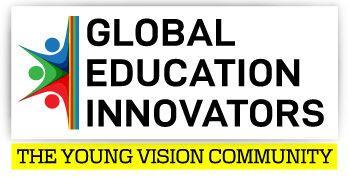Career Readiness
Written By - The Young Vision Ambassador, Shanel Misquitta, University of Melbourne.
There is a world of difference between what one studies in college and the career they pursue. No matter how jazzy a degree one earns, one can never be sufficiently armed for when they encounter the real deal. Let’s face it, finding a job is challenging enough, but that’s just the beginning: nothing comes close to the horror one could encounter if they enter the workplace unprepared. The following points are a brief overview of what one could try to do during their University years to try and ensure a smooth and comfortable transition into their career.
Soft Skills
The ability to conduct oneself well and get along with a wide range of people in the workplace is what every oranisation looks for when hiring. Simply being able to communicate and present one’s ideas effectively could put one ahead of the herd early on. Critical thinking, team working, conflict resolution and the ability to rebound from setbacks promptly are skills that most companies expect their employees to possess. These skills are highlighted during the interview process and sometimes even psychometric tests conducted during the recruitment process.
Technical Skills
In today’s tech driven age, most professions require employees to be technically competent even at entry level. Having knowledge of MS Office is a pretty standard requirement and can stand to go a long way. When it comes to knowledge, more is always less and one could always upgrade their skill set by learning to work on reporting platforms such as Tableau, MicroStrategy, Power Bi (a platform with interactive visualisations and BI capabilities), learning a coding language or simply pursuing anything productive that eases the transition to the workforce in the future.
Networking
The easiest way to get started with networking is by setting up a LinkedIn Account. LinkedIn connects users to professionals and companies in their field of study or interest, as well as advertises job prospects. Attending career exhibitions and fairs can also help one to meet people working in various fields and one could have a quick chat with them as well as adding interesting connections on Linkedin for future prospects. One never truly knows what the future has in store for them.
Internships/Workplace Opportunities
The above is relatively hard to come by, but it’s not all gloom and doom. If one has their LinkedIn profile set up and has networked sufficiently, an opportunity could always pop up. Internships are the real deal for getting a feel of what it’s like to truly be part of the workforce and the hands-on experience certainly accounts for more than you’ll ever learn. Apart from being an opportunity, internships could also be an eye opener as a job could not pan out to be what one expected it to be, causing people to re-evaluate their career choice and switch fields altogether – better to discover this early on!
